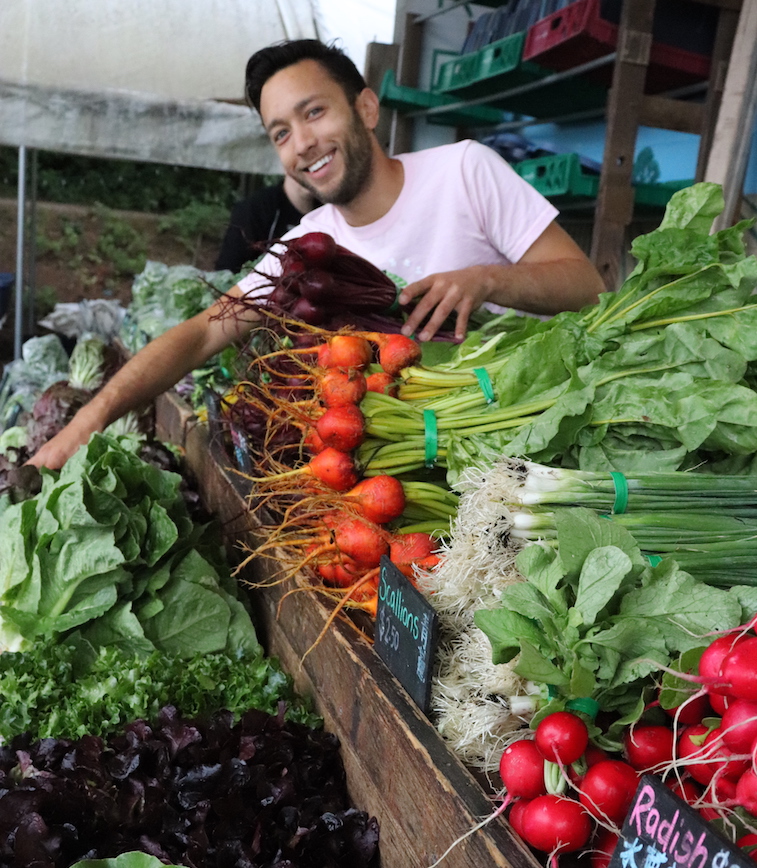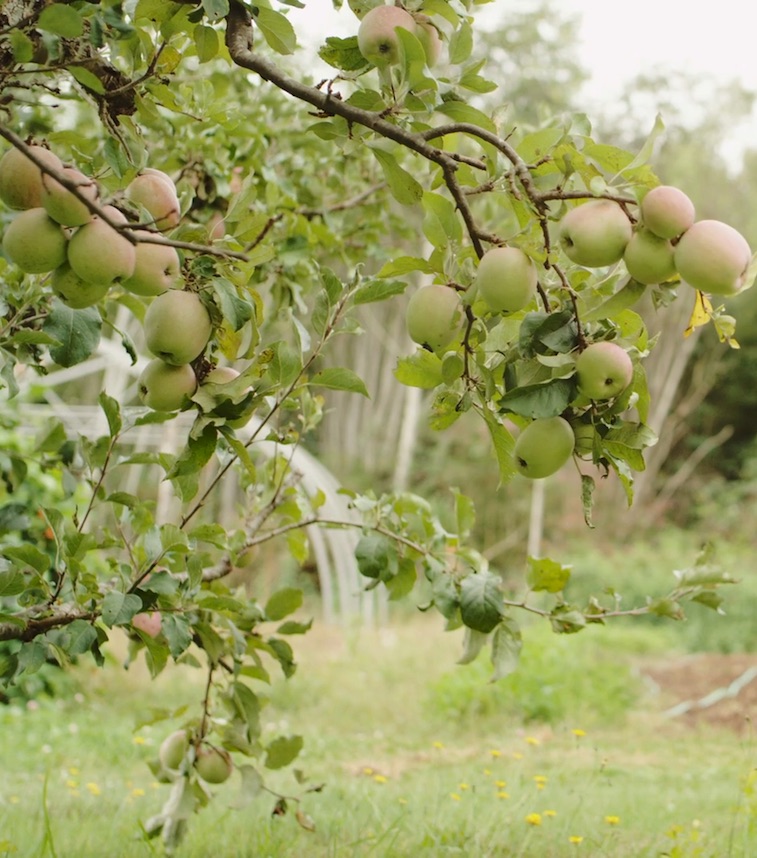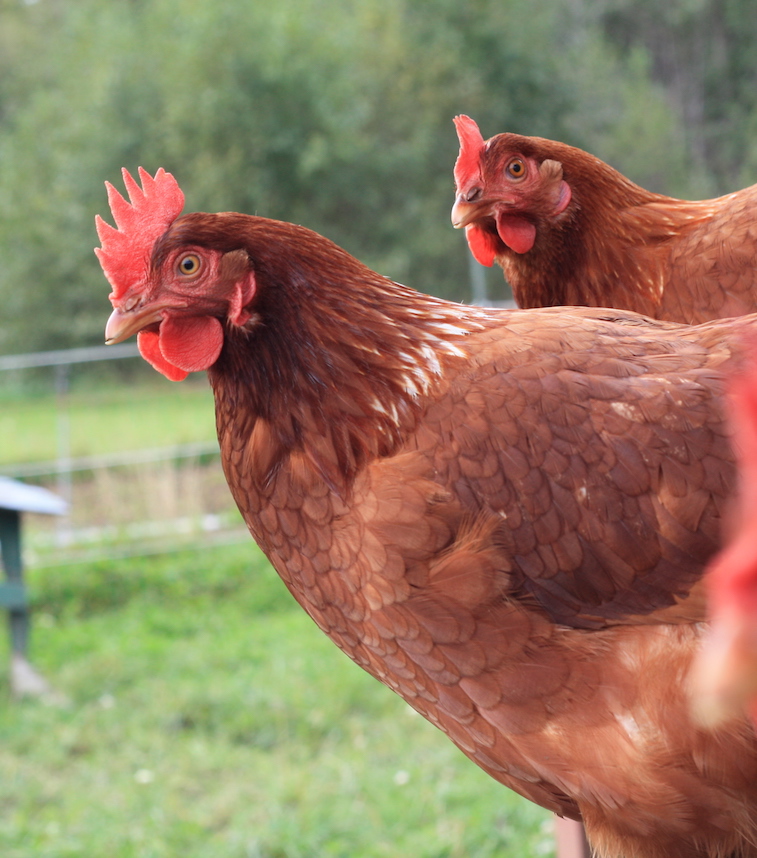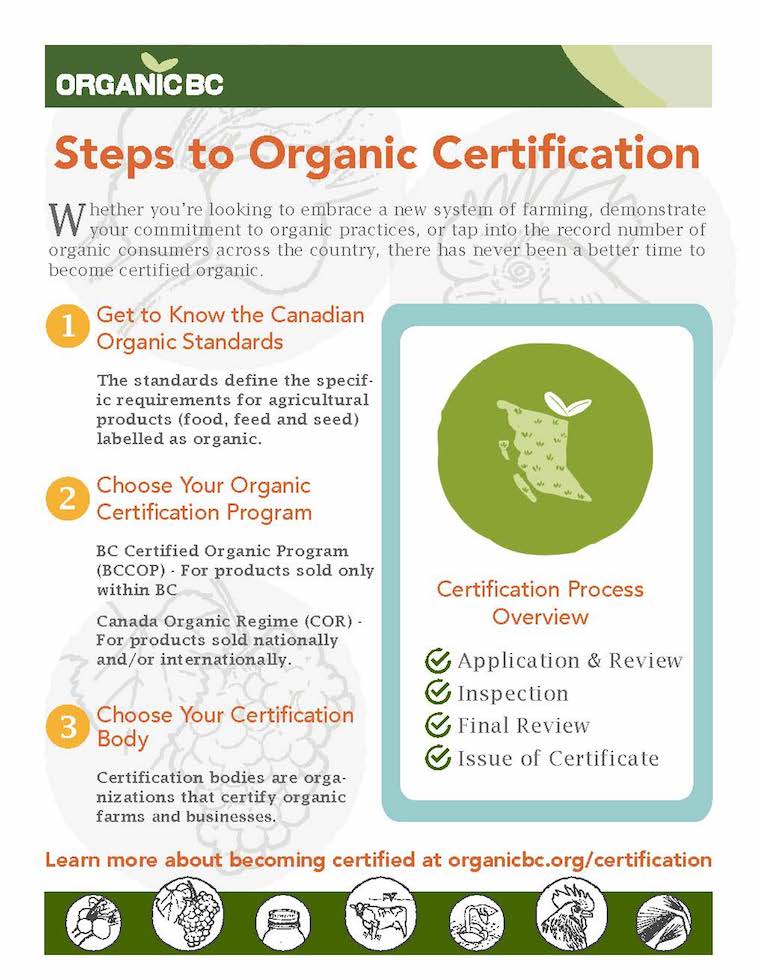Interested in becoming certified organic? Here’s how to get started.

The prep work
Before you begin the actual certification process, there are a few steps you need to take.
Become familiar with the Canadian Organic Standards
The Canadian Organic Standards (COS) define the specific requirements for agricultural products (food, feed and seed) labelled as organic. They are contained in two documents:
Additionally, there is a third document for aquaculture products:
Understanding the Canadian Organic Standards is a crucial step to becoming certified. To ensure that your farm or business meets the requirements of the Canadian Organic Standards, inspections are conducted within the initial application stage, and regularly once certified.
Learn more about the Canadian Organic Standards

Choose your organic certification program
First define your market, then choose a certification program that will best meet your needs.
British Columbia – BC Certified Organic Program (BCCOP)
If you intend to only sell your product within British Columbia, the BC Certified Organic Program is the right choice for you. The BCCOP is sanctioned by the Government of British Columbia and administered by Organic BC.
National & International – Canada Organic Regime (COR)
If you want to sell your products outside of British Columbia, nationally and/or internationally, you must apply for Canada Organic Regime (COR) certification.
Choose a certification body
Once you have decided which program (BCCOP or COR) best matches the needs of your farm or business, you’ll need to choose a certification body (CB). Each CB’s services vary according to:
- Scope of products – some CBs provide certification for specific crops, while others certify a broad range of products
- Geographical location – some CBs only provide services for specific areas in BC
- Fees – fees vary and some CBs may charge initial consultation fees
- Certification to other programs
Visit our certification body page for a list of certification bodies offering the BC Certified Organic Program and the Canada Organic Regime.


The certification process
While each certification body has its own unique process, they all share the same basic steps to certification.
Application and Review
The first step to certification is to complete an application. The certification body will review your application and notify you if additional information is required, or if there are non-compliances that need to be addressed.
Inspection
Once the application is complete, a verification officer will conduct an in-person inspection of your operation and submit an inspection report to your certification body.
Final Review
The certification body will review the inspection report and supporting documentation and make a certification decision based on minimum criteria documented in the program manual.
Issue of Certificate
Once all requirements are met, your organic certificate, transitional certificate or attestation of compliance will be issued. Display it with pride—you’ve earned it!
Steps to Organic Certification Guide
Our easy-to-read guide outlines the path to becoming certified organic in British Columbia. Keep it handy or share with a friend!
Download
Questions? Review our FAQ below or get in touch with your certification body.
FAQ
Organic BC provides accreditation for certification bodies, who certify organic farms and businesses within BC. We don’t directly provide certification services.
Before food can bear the certified organic logo, the land on which it has been grown or grazed must have been managed organically for at least 3 years. If you’ve already been farming according to the Canadian Organic Standards and have proof you’ve only been using permitted substances, you may be able to become certified organic in as little as a year.
There are many variables at play in the certification process, so please get in touch with your certification body to discuss the details of your operation and receive a more specific timeline.
The costs vary amongst different certification bodies. You will need to ask each organization about your particular circumstance.
Meticulous record keeping is necessary to maintain your organic status. That said, many of Organic BC’s certification bodies use iCertify, our innovative online certification tool. iCertify streamlines the organic application and renewal process and includes key features that save time for everyone involved. Want to know more? Ask your certification body if they’re using iCertify.
The term of an organic certificate is 12 months from the date of issue. It remains valid until that time, or until a renewal certificate is issued, or a certificate is revoked.
On March 19, 2024, the USDA implemented significant changes to the USDA organic regulations. Key impacts of this rule on imports and exports of organic products include the following: NOP Import Certificates and expanded certification requirements. Click here for more information.

